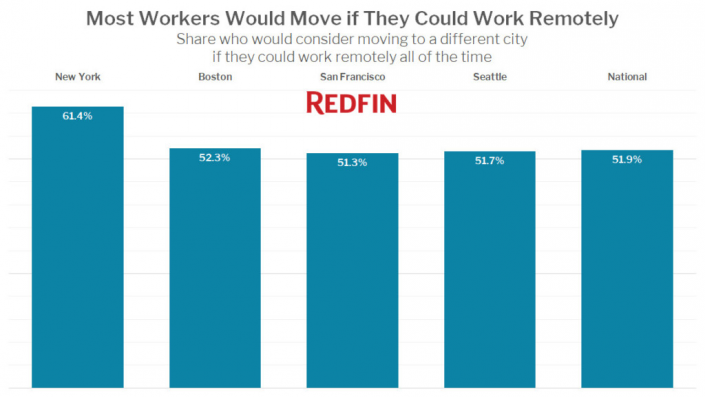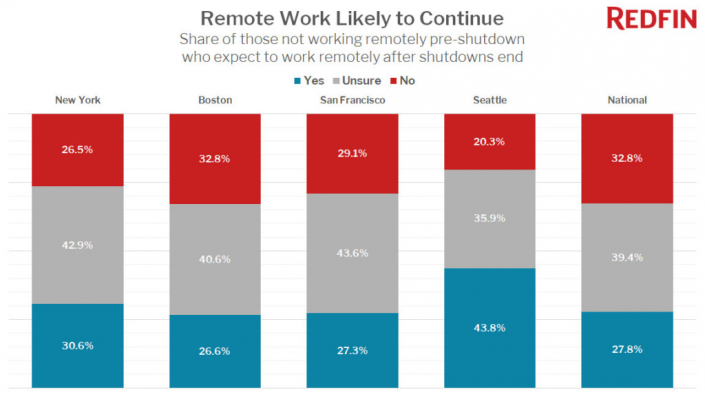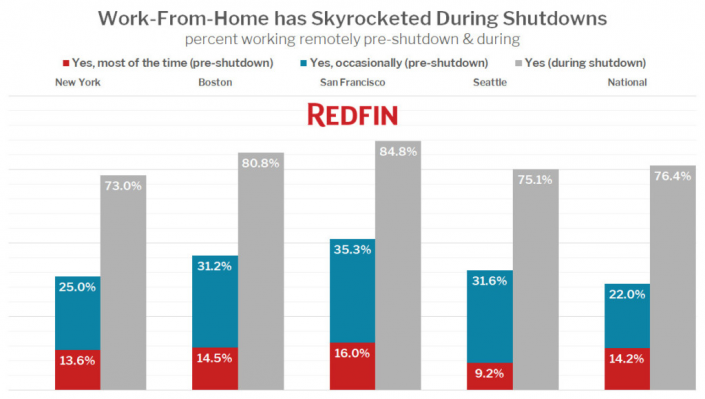Before the coronavirus pandemic, many of the world’s most profitable corporations set up camp in major cities, seeking to draw from the abundant talent residing — or wanting to reside — in urban centers.
But with the coronavirus pandemic heralding a corporate work-from-home revolution, a survey found more than 6 in 10 city dwellers are looking to leave, according to a new survey from online real brokerage Redfin.
The survey, which polled 900 Redfin users, found that more than 50 percent of respondents overall said they’d move elsewhere if they never had to commute to the office.
This flight risk is higher for residents of major cities, though. More than 60 percent of respondents from the New York City metro area said that they would consider moving away if they could work remotely. In Boston, San Francisco and Seattle the share that would move elsewhere was a bit above 50 percent.

To be sure, surveys before the pandemic also found many New Yorkers thinking about moving out of the state. Big city residents’ eagerness to leave is largely related to their cost of living. About 40 percent of New Yorkers and 36 percent San Franciscans said the main reason they’d leave was relief from high housing costs.
These findings could foreshadow a professional exodus from big cities because large shares of their workforces have the option to work from home. Before the coronavirus pandemic, 14 percent of survey respondents were working remotely most of the time. During the shutdowns, the share working from home shot up to 76 percent. In the San Francisco Bay area, that figure is 85 percent.

Additionally, 28 percent of respondents said they would probably keep working from home after the pandemic ended as well. But in bigger cities, such as Seattle, that figure is as high as 44 percent.

Some experts don’t expect to see migration from major metro areas after the pandemic. Researchers from the Brookings Institution found that migration to downtowns has accelerated over the last three decades and predict that trend will continue for the foreseeable future.
Still, jobs attract people to cities. And many profitable tech companies have announced plans to let their employees work from home, either for the rest of 2020 or indefinitely.
